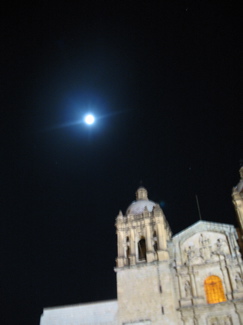
Chronicle of a Death Foretold drew me in immediately and I liked especially García’s interweaving of vivid characters. His depiction of village life via a composite of characters’ points of view on an event for me evoked Pedro Páramo though the two works are very different: García’s village is a lively place, ethnically diverse with many characters who exert a measure of control over their destinies (Angela Vicario, for example becomes “mistress of her own fate;” p. 93). They have strong friendships and some happiness in marriage. Rulfo’s Comala, however, having been destroyed by its cacique, is populated by ghosts, buffeted by forces outside their control. By contrast, two of García’s villagers butcher their cacique for taking advantage of one of their sister.
García’s narrator suggests that Santiago did not understand why the Vicario twins planned to kill him (p. 112), leaving some uncertainty that Santiago Nasar did have sex with Angela. García, however, depicts Santiago behaving completely entitled towards Divina Flor, and it’s possible he had the same behavior towards Angela, who evidently he would not have considered his equal (contrast, for example, his fiance Flor Miguel).
I read Chronicle of a Death Foretold in English and the English title threw me off- “a death foretold” I understood as “a death predicted.” The novel, however, works with the paradox of “una muerte annunciada” - the fact that the Vicario twins have made it public knowledge that they are going to kill Santiago Nasar, and that paradoxically in this town where everyone knows each other and each other’s habits, a multitude of opportunities to halt the murder were missed.

I think you make an interesting point about how the English title is misleading. The links with Rulfo are also interesting and, perhaps, could be extended to other works by Garcia Marquez. After all, both Rulfo and Garcia Marquez can violate realism because their settings are rural. That is, "magical realism," if we want to use the term, "works" in their narratives because they do not set them in modern cities. (Of course, Chronicle is, with the possible exception of some moments, not a magical realist work.
ReplyDelete